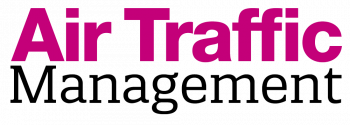The sponsored partners, Deutscher Wetterdienst (German Meteorological Service, DWD), DFS Deutsche Flugsicherung GmbH (German air navigation service provider) and ask – Innovative Visualisierungslösungen GmbH, as well the accompanying partners, Flughafen München GmbH (FMG) and Fraport AG (Frankfurt Airport), are keen to work together with a view to optimising decision-making processes in traffic management of airports and air traffic control by incorporating meteorological parameters. The objectives in this regard are to protect the environment, increase capacity, minimise delays and optimise cost efficiency. The project began in July 2020 and will run for three years and five months.
Weather-related operational restrictions are to be connected with meteorological data through the development and deployment of artificial intelligence (AI) processes. Munich and Frankfurt, the two largest international airports in Germany, have been selected to serve as examples. The aim is both to detect and quantify these relationships and then implement them in corresponding recommendations for decision-making.
To facilitate the implementation of the project, the requirements of the operational processes and operational structures of airport operations are to be depicted. Building on this, the processes for the key influencing factors can then be determined and possibilities of intervention defined. Existing data sources are to be identified and made available for the development of the AI process, as well as corresponding training. A milestone prior to the development of the actual process will be the presentation of the data process models used to illustrate the interdependencies of the data. Testing is to be performed for at least one prototype with one weather parameter.
The influence of weather on air traffic
Significant meteorological phenomena are often stated as the reason for delays in take-offs and landings. Before the COVID-19 pandemic hit, air traffic figures over Europe were constantly on the rise. The current assumption is therefore that these traffic figures will start to increase once again, at least in the mid-term. With its Single European Sky (SES) initiative, associated innovative solutions provided in the Air Traffic Management Master Plan and the SESAR programme, the European Union is attempting to find a long-term solution to the ongoing issue of ever denser air traffic over Europe.
The hub airports clearly represent a bottleneck in the network here. However, there is a whole host of issues associated with the construction of additional runways, meaning that other intelligent solutions are required in order to handle the increasing traffic at the major airports. These can potentially include the introduction of a Total Airport Management System or various measures for increasing runway capacity. “The Met4Airports project is of major strategic significance for the DWD and ground-breaking in terms of cooperation with airspace users.
The project will use innovative methods to combine meteorological data with the operational data of airports and air traffic control, thereby contributing to more efficient procedures,” commented Klaus Sturm, Department Head of Customer Services and Development in the DWD’s Business Area of Weather Forecasting Services.
“The operational air navigation services in Munich have already examined all kinds of meteorological phenomena in the past and worked on ways to address the associated problems. The cooperation with partners and implementation of scientific findings play a key part in this regard. We are always on the lookout for innovative solutions and have found one here. The support of our project partners and politicians gives us a clear indication that we are on the right track,” added Wolfgang Bretl, Director Operations at the DFS unit in Munich.
“With this project, we have brought together people with the right skills from all important fields. We feel certain that we can make a valuable contribution to optimising the forecast of weather-related delays and capacity bottlenecks in aviation through the use of the latest information processing technologies with a focus on AI and machine learning,” commented Hermin Beumer-Aftahi, Managing Director at ASK.
€2 million from the German Federal Ministry of Transport and Digital Infrastructure
At present, aeronautical meteorological products are predominantly provided at airports in the form of visualisation systems to support decision-making processes. Machine-supported or even AI-supported evaluation of meteorological data together with operational data from airports and air traffic control is not yet being performed. However, to make this possible, the German Federal Ministry of Transport and Digital Infrastructure (BMVI) is funding the current Met4Airports project with a total of €2,000,000 as part of the mFUND research initiative.
Information on the mFUND initiative of the BMVI
Since 2016 and as part of the mFUND research initiative, the German Federal Ministry of Transport and Digital Infrastructure (BMVI) has been funding research and development projects related to data-based digital applications for Mobility 4.0. Alongside financial assistance, the mFUND initiative supports networking with various event formats between stakeholders from the political sphere, as well as the business and research communities. In addition, it promotes access to the mCLOUD data portal.
